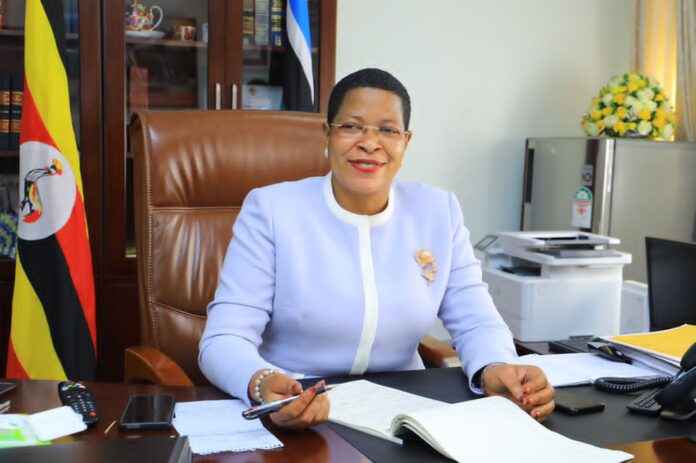Parliament has clarified allegations of tribal bias directed at Speaker Anita Annet Among following recent remarks during discussions on the National Coffee (Amendment) Bill, 2024.
The controversy arose after a video circulated on social media, showing Speaker Among consulting privately with the Clerk at Table during a session on the bill. In the clip, her full statement is inaudible, leading some viewers to interpret her words as critical of the Baganda community.
However, Parliament’s spokesperson, Chris Obore, addressed the issue in an official statement on Friday, October 25, 2024, explaining that the video is incomplete, and the speaker’s comments have been misunderstood.
Obore dismissed the allegations as a “poor attempt at using artificial intelligence to achieve political goals,” emphasizing that the interpretation is based on incomplete information and personal biases.
Read More: URC Names Benon Kajuna as Managing Director
He explained that some MPs had previously suggested that the National Coffee (Amendment) Bill was unfairly targeting the Buganda region, implying it was “poison served by the government to the people of Buganda.” In response, Speaker Among urged MPs to avoid linking the bill to tribal issues, noting that coffee is an essential crop in various regions, including Bugisu, and stressing that the bill is intended to benefit all Ugandans, not any specific region.
She also tasked the Government Chief Whip with ensuring that the debate on the bill remains focused on its broader impact, free from tribal implications.
According to Obore, Speaker Among has a respectful and collaborative relationship with Buganda’s people and leaders, highlighted by her prior consultation with the Buganda Parliamentary Caucus about the bill.

The National Coffee (Amendment) Bill, 2024
The National Coffee (Amendment) Bill, 2024, has stirred significant debate. It aims to redefine the Uganda Coffee Development Authority’s (UCDA) responsibilities, moving certain functions to the Ministry of Agriculture. While the bill intends to improve the efficiency of Uganda’s coffee sector, it has met resistance, especially from MPs representing Buganda, where coffee is a major economic driver.
Some MPs argue that the bill disproportionately impacts Baganda farmers, who contribute nearly 50% of Uganda’s coffee exports, and see the changes as a threat to Buganda’s economic stability.
Parliament has urged that discussions around the bill focus on its nationwide benefits rather than potential regional impacts.






